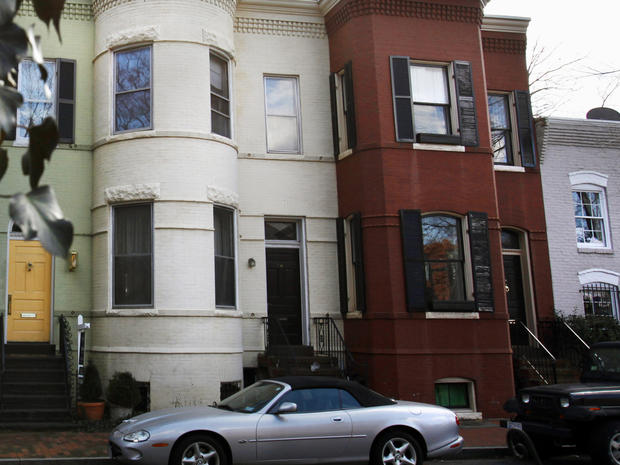Trial in death of DC socialite, 91, bound to be bizarre
WASHINGTON, D.C. - As his murder trial opened Tuesday, prosecutors and defense attorneys painted starkly different pictures of a German man accused of strangling his elderly wife, 91, to death at their home in a posh Washington, D.C. neighborhood in 2011.
Prosecutors say Albrecht Muth, 49, who masqueraded as a well-connected Iraqi Army general, searched online for escape plans and claimed to be entitled to part of the socialite's estate before the killing. His defense team, however, claimed Muth was innocent and called the government’s version of events a “theory.”
Muth, 49, is standing trial two-and-a-half years after Viola Drath, a 91-year-old German journalist and playwright, was found strangled and fatally beaten in the couple's row home in Washington's Georgetown neighborhood.
Muth latched onto Drath's social connections, inventing various personas for himself — including making false claims about being a brigadier general in the Iraqi army. He was known to walk the neighborhood in a purchased military-style uniform and displayed a store-bought military certificate in his house.
But the marriage was marked by more than Muth’s eccentricities – he had drunken outbursts, occasionally made threats and acted violently and had side romantic relationships with men, prosecutor Glenn Kirschner said.
Muth pleaded guilty to assaulting Drath in 1992. She alleged in 2006 that he had attacked her during an argument, and a computer repairman recalled seeing him shove her and curse at her during a visit to their home months before the death, Kirschner told the jury.
Kirschner said the slaying was a “domestic-violence murder” — one he said was a “long time coming,” reports The Washington Post.
On the morning of August 12, 2011, Muth called police to report having found his wife dead in a third-floor bathroom of their home. There were no signs of forced entry to the home during the overnight hours when Drath is believed to have been killed and a neighbor reported having heard a faint cry and a man's laugh, Kirschner told jurors.
Detectives who examined Muth's laptop computer after Drath's death found Google searches including "crossing the Canadian border" and flights to Iceland, Kirschner said.
He was arrested several days after the death once police identified him as their suspect.
Muth alerted Drath’s daughter Fran to her mother's death in what she described Tuesday as a staccato, passionless voice, insinuating she had died after a fall.
Then he presented her with a type-written amendment to her will — with spaces for both his signature and his wife's — stating that he was entitled to up to $200,000 from her estate upon her death. In reality, Viola Drath had specifically disinherited Muth in a will that was executed months earlier, prosecutors say.
"It's clumsy. It's callous. It's calculated. It's motive for murder," Kirschner said of the bogus codicil.
The prosecutor showed Fran Drath a copy of the document Tuesday and asked her about a signature purported to be from her mother on the piece of paper. "It doesn't look right," she said.
But on cross-examination, Dana Page, one of Muth’s defense lawyers, suggested the relationship was far closer than her daughter had indicated. Page noted that the couple had affectionate nicknames for each other, threw parties with each other and encouraged each other's eccentricities.
"They were co-conspirators in all of this," Page said.
Public defender Craig Hickein, another lawyer for Muth, said there was no DNA link to the killing and that Muth voluntarily reported the death to police and agreed to extensive interviews with detectives.
"Albrecht Muth didn't flee. He didn't hide. He didn't need to," Hickein said.
Muth is not present during the trial -- his self-imposed bouts of starvation for what he says are religious reasons have resulted in prolonged hospital stays. After a delay of nearly two years, a judge ruled Muth has “waived” his right to be present at the trial by “orchestrating his own absence,” reports the Washington Post.
His attorneys have reportedly argued that Muth is mentally ill and should be committed to a mental health facility, but he was ruled competent to stand trial after several evaluations. He is watching the trial via video conference.
